DELTA VARIANT SPREADS FAST IN S. KOREA
입력 2021.07.12 (15:07)
수정 2021.07.12 (16:45)
읽어주기 기능은 크롬기반의
브라우저에서만 사용하실 수 있습니다.
[Anchor Lead]
An analysis of coronavirus patients in Korea shows COVID-19 variants are spreading rampantly in the country. More Delta variant cases than Alpha cases were detected last week in the greater Seoul area. The government is to open more quarantine centers as most of the patients are either asymptomatic or have mild symptoms.
[Pkg]
Of the four COVID-19 variants, the Alpha variant had been dominant in Korea until recently. But in the past week, more than twice as many Delta variant cases were detected in the greater Seoul area as Alpha variant cases. Although Delta cases still fall short of the majority of coronavirus cases in Korea, they now account for a third of new infections. Delta is known to be about 60 percent more contagious than all previous variants, and those who contract it are said to be twice as likely to develop severe symptoms. Because this highly transmissible strain is spreading faster than epidemiologists can trace it, the source of infection of more than 30 percent of cases — the highest rate so far -- was under investigation in the past two weeks. Quarantine centers are becoming filled up quickly as the number of asymptomatic patients and those with mild symptoms is surging rapidly. Currently 41 quarantine centers are being operated nationwide. Of those, 27 are run by local governments in the Seoul metropolitan area. Currently they are operating at 82 percent capacity. While there are still enough hospital beds for all infected, the government plans to secure some 5000 more beds in the next two weeks to prepare for an increase in the number of patients.
[Soundbite] Sohn Young-rae(Central Disaster Management HQs) : "We will consider deploying quarantine centers in other regions and having infected people who live alone receive treatment at home."
To contain the spread of the virus, health officials will crackdown on seven types of high-risk facilities, such as private academies and religious facilities, to check if they are following anti-virus measures thoroughly.
An analysis of coronavirus patients in Korea shows COVID-19 variants are spreading rampantly in the country. More Delta variant cases than Alpha cases were detected last week in the greater Seoul area. The government is to open more quarantine centers as most of the patients are either asymptomatic or have mild symptoms.
[Pkg]
Of the four COVID-19 variants, the Alpha variant had been dominant in Korea until recently. But in the past week, more than twice as many Delta variant cases were detected in the greater Seoul area as Alpha variant cases. Although Delta cases still fall short of the majority of coronavirus cases in Korea, they now account for a third of new infections. Delta is known to be about 60 percent more contagious than all previous variants, and those who contract it are said to be twice as likely to develop severe symptoms. Because this highly transmissible strain is spreading faster than epidemiologists can trace it, the source of infection of more than 30 percent of cases — the highest rate so far -- was under investigation in the past two weeks. Quarantine centers are becoming filled up quickly as the number of asymptomatic patients and those with mild symptoms is surging rapidly. Currently 41 quarantine centers are being operated nationwide. Of those, 27 are run by local governments in the Seoul metropolitan area. Currently they are operating at 82 percent capacity. While there are still enough hospital beds for all infected, the government plans to secure some 5000 more beds in the next two weeks to prepare for an increase in the number of patients.
[Soundbite] Sohn Young-rae(Central Disaster Management HQs) : "We will consider deploying quarantine centers in other regions and having infected people who live alone receive treatment at home."
To contain the spread of the virus, health officials will crackdown on seven types of high-risk facilities, such as private academies and religious facilities, to check if they are following anti-virus measures thoroughly.
■ 제보하기
▷ 카카오톡 : 'KBS제보' 검색, 채널 추가
▷ 전화 : 02-781-1234, 4444
▷ 이메일 : kbs1234@kbs.co.kr
▷ 유튜브, 네이버, 카카오에서도 KBS뉴스를 구독해주세요!
- DELTA VARIANT SPREADS FAST IN S. KOREA
-
- 입력 2021-07-12 15:07:43
- 수정2021-07-12 16:45:30
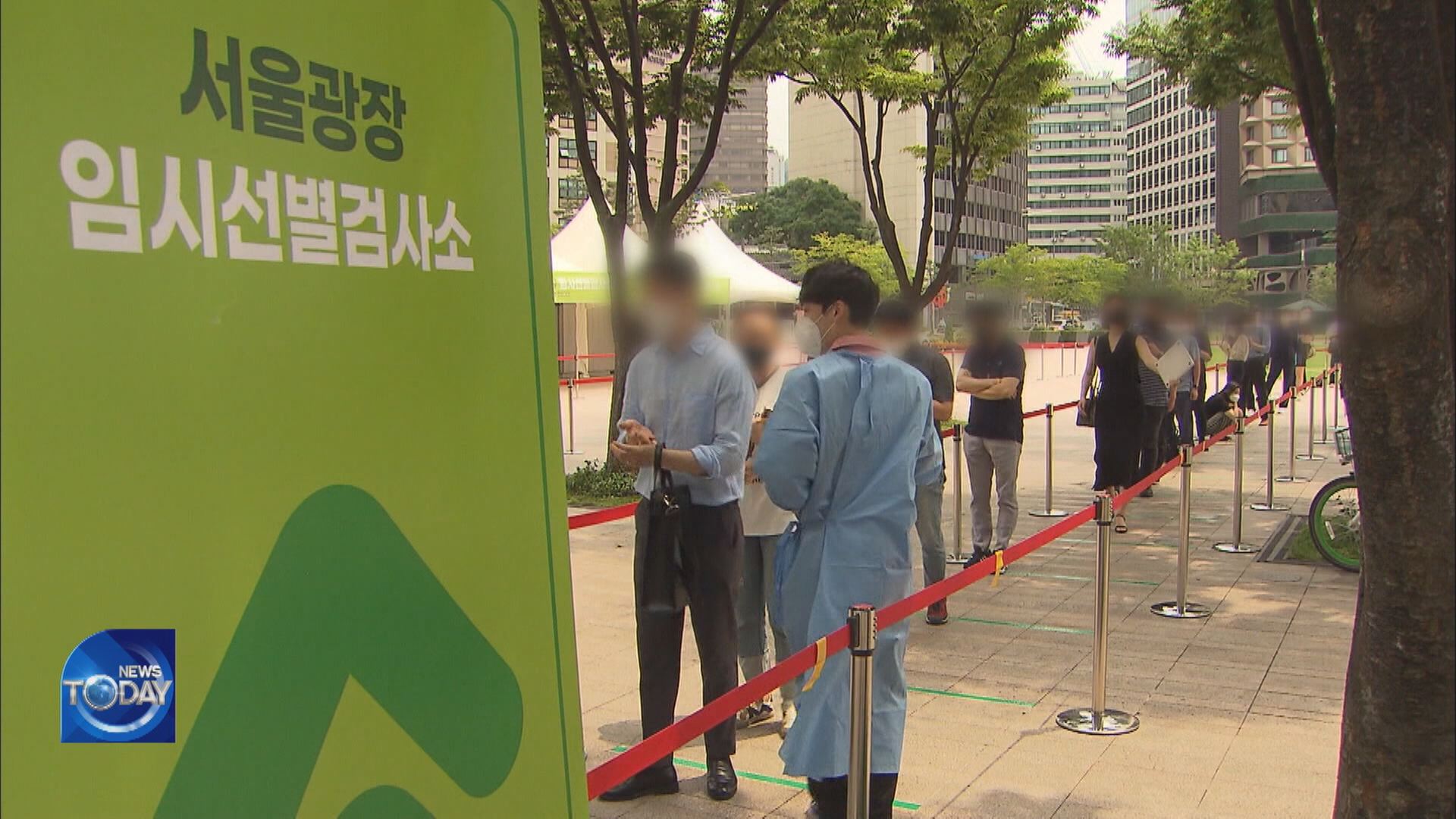
[Anchor Lead]
An analysis of coronavirus patients in Korea shows COVID-19 variants are spreading rampantly in the country. More Delta variant cases than Alpha cases were detected last week in the greater Seoul area. The government is to open more quarantine centers as most of the patients are either asymptomatic or have mild symptoms.
[Pkg]
Of the four COVID-19 variants, the Alpha variant had been dominant in Korea until recently. But in the past week, more than twice as many Delta variant cases were detected in the greater Seoul area as Alpha variant cases. Although Delta cases still fall short of the majority of coronavirus cases in Korea, they now account for a third of new infections. Delta is known to be about 60 percent more contagious than all previous variants, and those who contract it are said to be twice as likely to develop severe symptoms. Because this highly transmissible strain is spreading faster than epidemiologists can trace it, the source of infection of more than 30 percent of cases — the highest rate so far -- was under investigation in the past two weeks. Quarantine centers are becoming filled up quickly as the number of asymptomatic patients and those with mild symptoms is surging rapidly. Currently 41 quarantine centers are being operated nationwide. Of those, 27 are run by local governments in the Seoul metropolitan area. Currently they are operating at 82 percent capacity. While there are still enough hospital beds for all infected, the government plans to secure some 5000 more beds in the next two weeks to prepare for an increase in the number of patients.
[Soundbite] Sohn Young-rae(Central Disaster Management HQs) : "We will consider deploying quarantine centers in other regions and having infected people who live alone receive treatment at home."
To contain the spread of the virus, health officials will crackdown on seven types of high-risk facilities, such as private academies and religious facilities, to check if they are following anti-virus measures thoroughly.
An analysis of coronavirus patients in Korea shows COVID-19 variants are spreading rampantly in the country. More Delta variant cases than Alpha cases were detected last week in the greater Seoul area. The government is to open more quarantine centers as most of the patients are either asymptomatic or have mild symptoms.
[Pkg]
Of the four COVID-19 variants, the Alpha variant had been dominant in Korea until recently. But in the past week, more than twice as many Delta variant cases were detected in the greater Seoul area as Alpha variant cases. Although Delta cases still fall short of the majority of coronavirus cases in Korea, they now account for a third of new infections. Delta is known to be about 60 percent more contagious than all previous variants, and those who contract it are said to be twice as likely to develop severe symptoms. Because this highly transmissible strain is spreading faster than epidemiologists can trace it, the source of infection of more than 30 percent of cases — the highest rate so far -- was under investigation in the past two weeks. Quarantine centers are becoming filled up quickly as the number of asymptomatic patients and those with mild symptoms is surging rapidly. Currently 41 quarantine centers are being operated nationwide. Of those, 27 are run by local governments in the Seoul metropolitan area. Currently they are operating at 82 percent capacity. While there are still enough hospital beds for all infected, the government plans to secure some 5000 more beds in the next two weeks to prepare for an increase in the number of patients.
[Soundbite] Sohn Young-rae(Central Disaster Management HQs) : "We will consider deploying quarantine centers in other regions and having infected people who live alone receive treatment at home."
To contain the spread of the virus, health officials will crackdown on seven types of high-risk facilities, such as private academies and religious facilities, to check if they are following anti-virus measures thoroughly.
이 기사가 좋으셨다면
-
좋아요
0
-
응원해요
0
-
후속 원해요
0










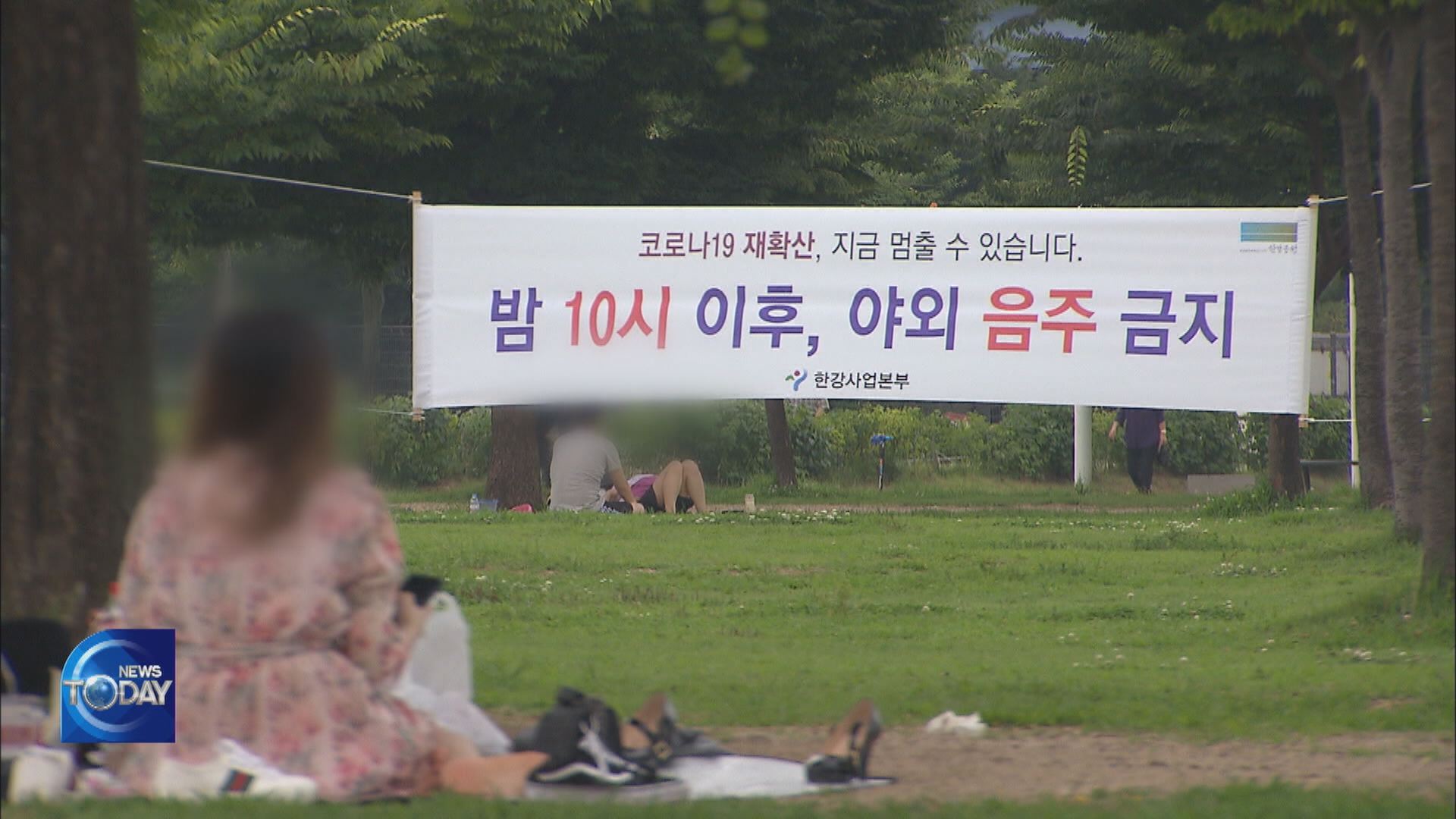
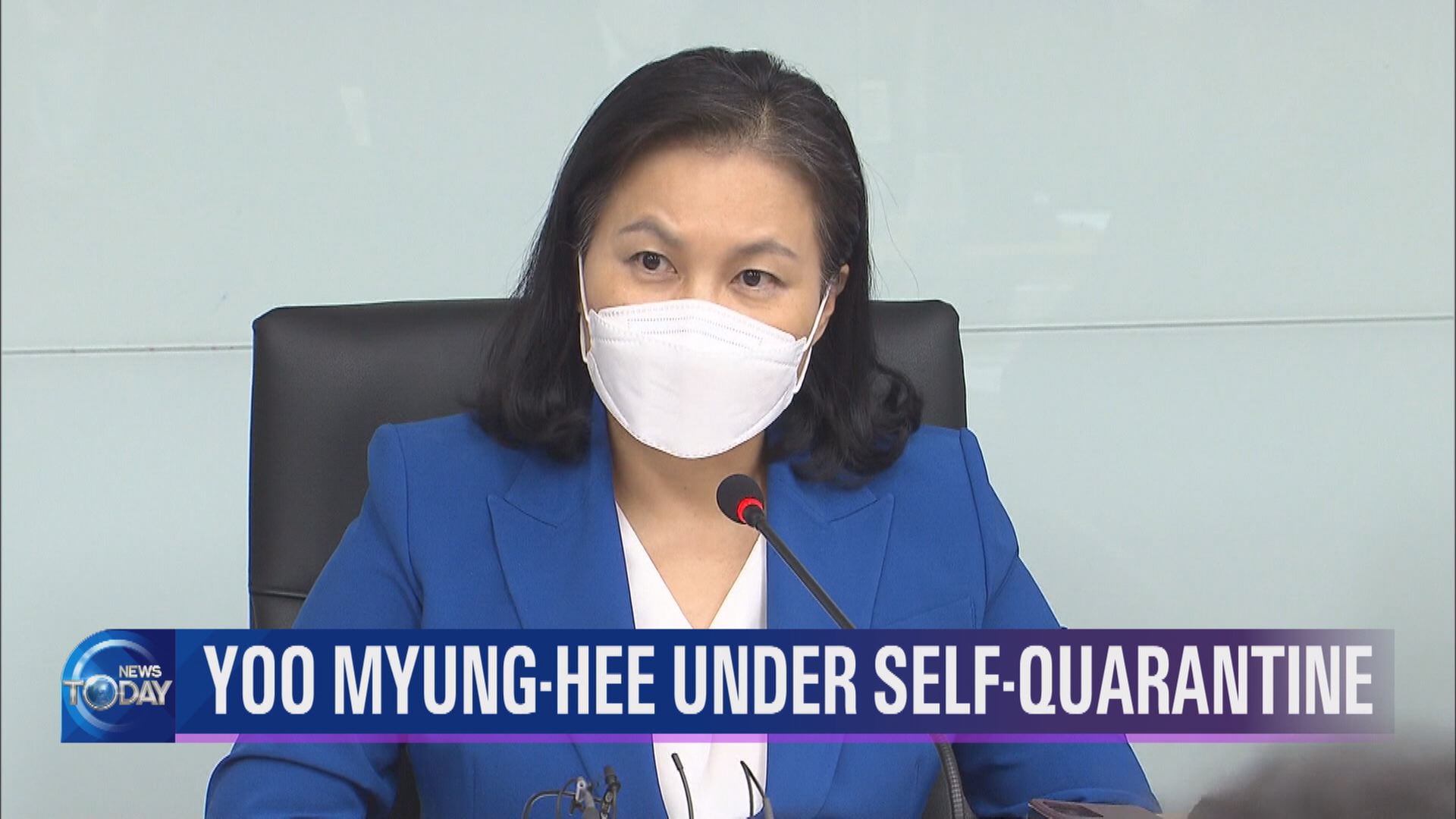
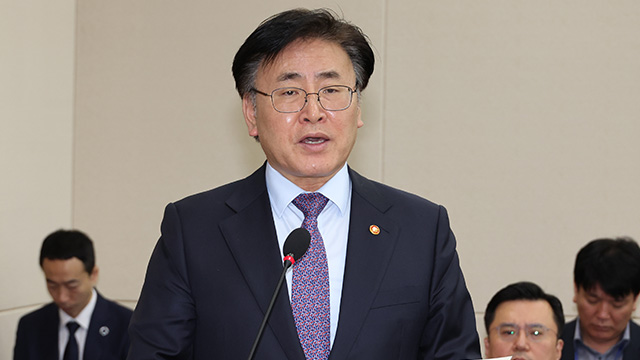
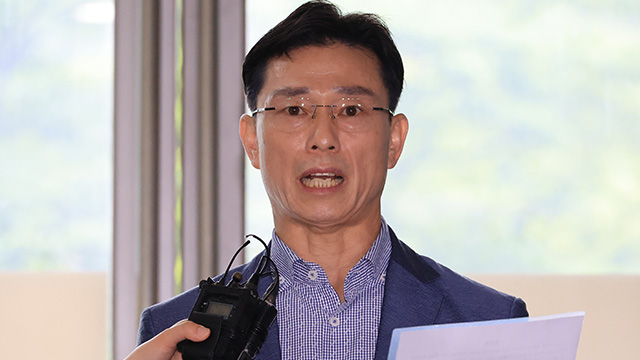

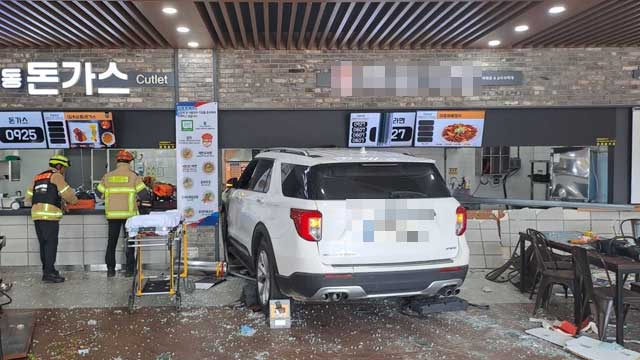

이 기사에 대한 의견을 남겨주세요.